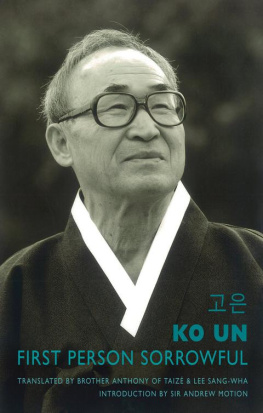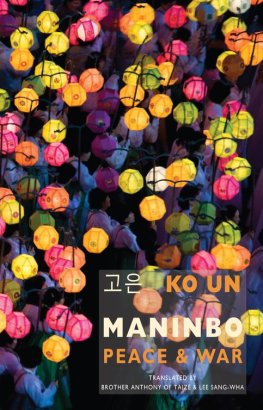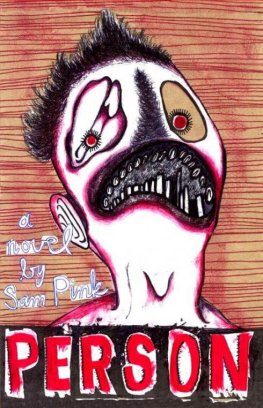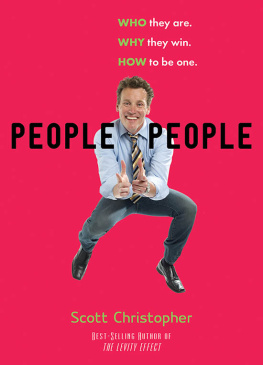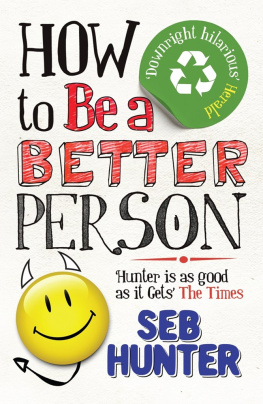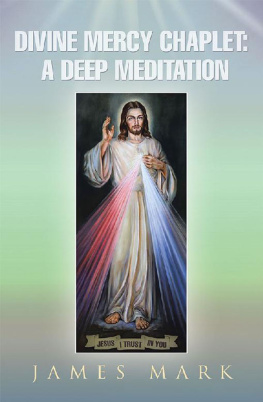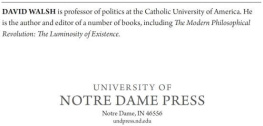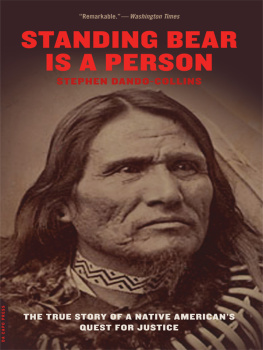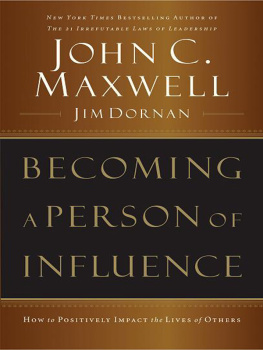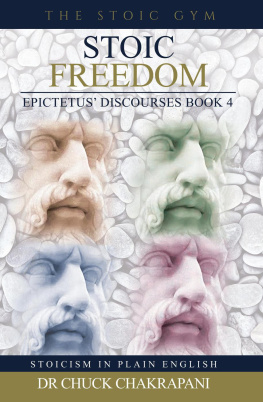Ko Un - First Person Sorrowful
Here you can read online Ko Un - First Person Sorrowful full text of the book (entire story) in english for free. Download pdf and epub, get meaning, cover and reviews about this ebook. year: 0, genre: Art. Description of the work, (preface) as well as reviews are available. Best literature library LitArk.com created for fans of good reading and offers a wide selection of genres:
Romance novel
Science fiction
Adventure
Detective
Science
History
Home and family
Prose
Art
Politics
Computer
Non-fiction
Religion
Business
Children
Humor
Choose a favorite category and find really read worthwhile books. Enjoy immersion in the world of imagination, feel the emotions of the characters or learn something new for yourself, make an fascinating discovery.
First Person Sorrowful: summary, description and annotation
We offer to read an annotation, description, summary or preface (depends on what the author of the book "First Person Sorrowful" wrote himself). If you haven't found the necessary information about the book — write in the comments, we will try to find it.
First Person Sorrowful — read online for free the complete book (whole text) full work
Below is the text of the book, divided by pages. System saving the place of the last page read, allows you to conveniently read the book "First Person Sorrowful" online for free, without having to search again every time where you left off. Put a bookmark, and you can go to the page where you finished reading at any time.
Font size:
Interval:
Bookmark:
As Michael McLure wrote years ago: Ko Uns poetry has the old-fashionedness of a muddy rut on a country road after rain, and yet it is also as state-of-the-art as a DNA micro-chip. That remains true today.
Ginsberg called him a magnificent poet, [a] combination of Buddhist cognoscente , passionate political libertarian, and naturalist historian. The praise was well deserved. Yet despite this advocacy and the publication of more than forty translations of his work in Western languages, including twelve in English, Ko Un remains less well-known among poetry lovers in the West, in Britain especially, than he deserves to be. He is a major poet, who has absolutely compelling things to say about the entire history of South Korea, and equally engrossing things to say about his own exceptionally interesting life and sensibility. The reasons for the ignorance in the West of Ko Uns work and of Korean poetry generally are complicated. Some have to do with historical pressures: with the restriction of the Korean language during the Japanese occupation during the first part of the 20th century; with the turbulence during the Korean War (1950-53); and with the period of censorship that followed on both sides of the border.
Some have to do with matters closer to home. With our characteristic indifference to literature in translation, and our suspicions about the re-casting of poetry in particular. And (supposing we manage to overcome that) with our assumption that if Asian literature departs from the aesthetics of Chinese and Japanese poetry (with its powerful emphasis on beauty), it must in some way be second-rate. These problems are lamentable in various ways and to various degrees. And theyre exacerbated by something else which should in fact be a reason for praising Ko Un. He is an extraordinarily prolific poet: the author of 150 volumes of poetry, fiction and essays among them Maninbo (Ten Thousand Lives), which runs to thirty volumes, and Paektu-san, which runs to seven volumes.
Of quick and suggestive Zen poems, as delicate as handwriting on water. Of robust gossipy poems. Of joke-poems. Of poems that are squally with anger and compassion. Of love poems. Of political poems.
Taken all in all, it is a truly remarkable range of achievement . But it can seem almost literally dazzling. All these things make the publication of First Person Sorrowful a significant event. It gives an overview of Ko Uns recent work by focusing (with a very few exceptions) on poems he has written in the last ten years. It indicates why we should think of him as a national poet, deeply engaged with national themes, but at the same time as a very personal one. It is exceptionally well-translated.
And it allows us to see that despite the great variety of his writing Ko Un is in fact a very concentrated poet. His abiding concern is nothing less than the quintessentially human question of what it means to live in time. On page after page in this book, in a wonderful cascade of different forms and registers, we find him squaring up to the paradoxes this entails. One minute he is demonstrating a deep apprehension of long geological time (the gulls lost their ocean. / They cried aloud. / They have continued their lives / through a second generation, a twelfth, even a 1302nd); the next he is intensely involved with the business of living at a particular moment: Today, too, the glow of the setting sun is glorious!.
One minute he is looking back at the past with regret (In that obtuse period, / all I hoped for was storms that would jolt me breathless); the next he is criticising the desecrations of the present: All of the Korean peninsula is turning into Seoul. / Oh shit, a country with a crush on glitz. Given a less steady temperament, and a less accommodating imagination, we might expect our travels through these different time-zones to feel zigzag or even queasy. In fact the prevailing movement of the poems is oddly consoling because it is circular. Which is to say that Ko Un responds to the almost-infinite variety of things-in-themselves (and of his perceptions) by making every new beginning seem like part of a process of returning, and by transfiguring every now into a link with then. This of course says something interesting about the way in which he sees time itself.
It also acts as a framework for the way in which he interprets his own life and the life of others operating within time. Individuals are individuals, and valued for their originality, but their experience cannot avoid being part of a process. In the same way, personal interests cannot help becoming political matters, and national issues inevitably join international ones. These connections seem especially compelling thanks to the physicality with which Ko Un writes about them. Yet this physicality itself embraces a paradox, for the striking reason that Ko Un generally mixes the allegorical with the elemental. Sure, he enjoys writing about ordinary things.
But the recurring motifs of his poems are generic clouds, rivers, flags, winds and skies, and over the course of this book they create a panorama that feels at once very particular and highly abstracted, and a style that is both familiar and original a kind of amplified Symbolism. These different kinds of cohesion principled, spiritual, philosophical , argumentative, stylistic all converge on the same point. For Ko Un range does not mean diffusion but unity. His hungry appetite for experience, the rapidity with which he synthesises it, the nervous energy of his rhythms: all these things are the hallmarks of a poet whose particular interest is to inhabit each moment as it passes, and yet to see all moments flowing endlessly into one another. This is the process by which he inhabits himself and other people. It is what makes him his own man, and a most eloquent citizen of the world.
ANDREW MOTION FROM
(2002)Font size:
Interval:
Bookmark:
Similar books «First Person Sorrowful»
Look at similar books to First Person Sorrowful. We have selected literature similar in name and meaning in the hope of providing readers with more options to find new, interesting, not yet read works.
Discussion, reviews of the book First Person Sorrowful and just readers' own opinions. Leave your comments, write what you think about the work, its meaning or the main characters. Specify what exactly you liked and what you didn't like, and why you think so.

